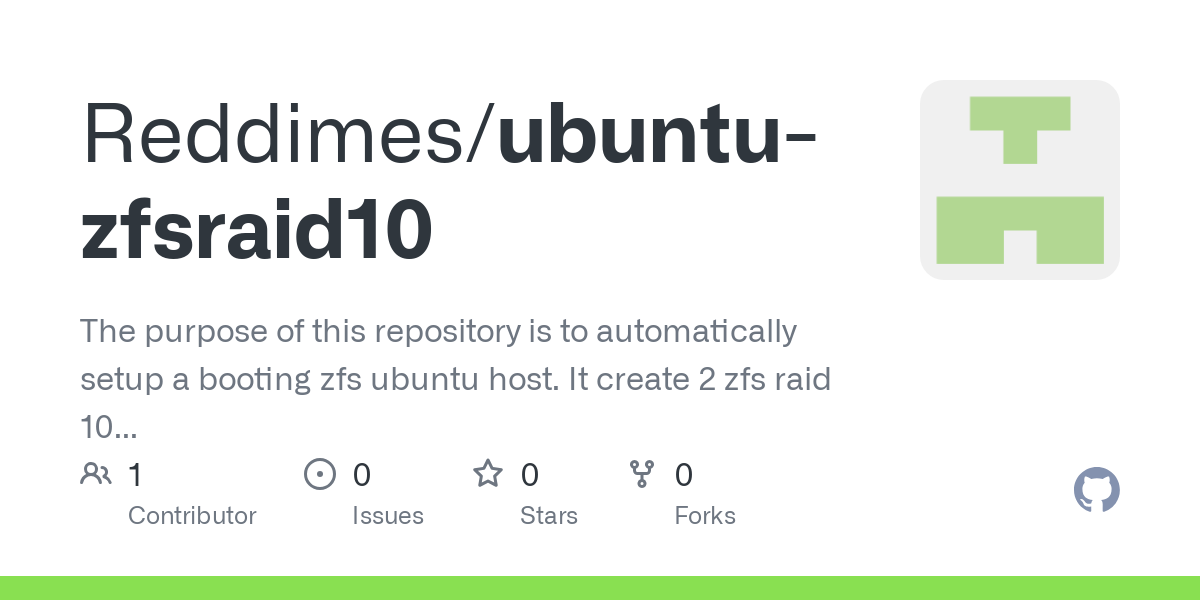Hello there Selfhosted community!
This is an announcement of the completion of a project I’ve been working on. A Script for installing Ubuntu 24.04 on a ZFS RAID 10. Now, I’d like to describe why I choose to develop this and how I’d like for other people to have access to it as well. Let us start with the hardware.
Now, I am using an old host. My host in particular was originally a BCDR device that was based on a ZFS raidz implementation. Since it was designed for ZFS, it doesn’t even have a RAID card, it only has an HBA anyways. So for redundancy, ZFS is a good way to go. Now, even though this was a backup appliance, it did not have root on ZFS. Instead, it had a separate harddrive for the operating system and three individual disks for the zpool. This was not my goal.
So I did a little research and testing. I looked at two particular guides (Debian/Ubuntu). Now, I performed those steps a dozens of times because I kept messing up the little things. And to eliminate the human error(that’s me) I decided to just go ahead and script the whole thing.
The Github Repository I linked contains all the code needed to setup a generic ubuntu-server host using a ZFS RAID 10.
Instructions for starting the script are easy. Boot up a live cd(https://ubuntu.com/download/server). Hit CTRL+ALT+F2 to go into the shell. Run the following command:
bash <(wget -qO- https://raw.githubusercontent.com/Reddimes/ubuntu-zfsraid10/refs/heads/main/tools/install.sh)
This command does clone the repository, changes directory into it, and runs the entrypoint(sudo ./init.sh). Hopefully, this should be easy to customize to meet your needs.
More Engineering details are on the Github.



Here is the exact issue that I’m having. I’ve included screenshots of the command I use to list HDDs on the live cd versus the same command run on Ubuntu 24.04. I don’t know anything about what is causing this issue so perhaps this is a time where someone else can assist. Now, the benefit to using /dev/disk/by-id/ is that you can be more specific about the device, so you can be sure that it is connected to the proper disk no matter the state that your environment is in. This is something that you need to do to have a stable ZFS install. But if I can’t do that with scsi disks, then that advantage is limited.
Windows Terminal for the win, btw.
Live CD:
Ubuntu 24.04 Installed: